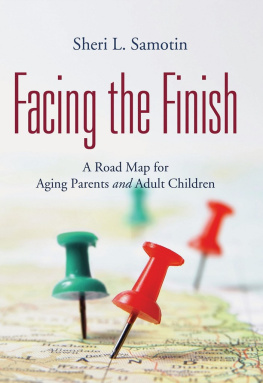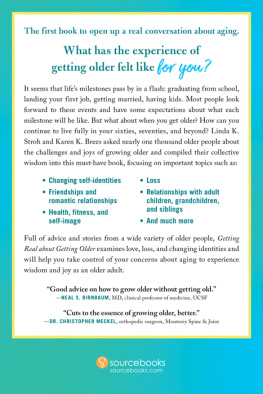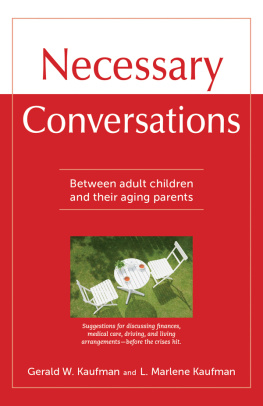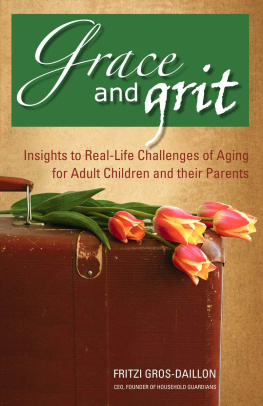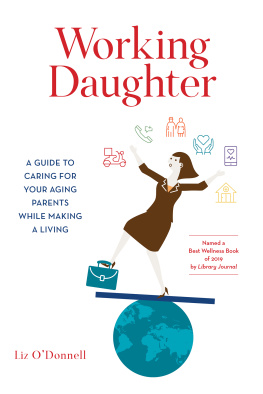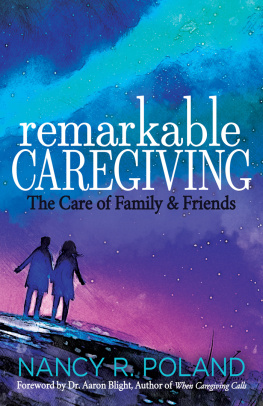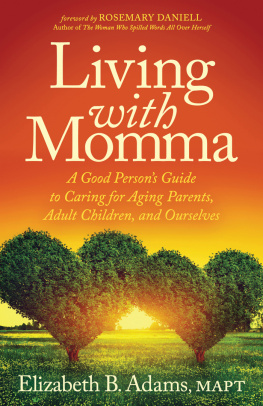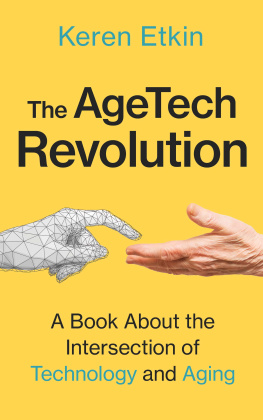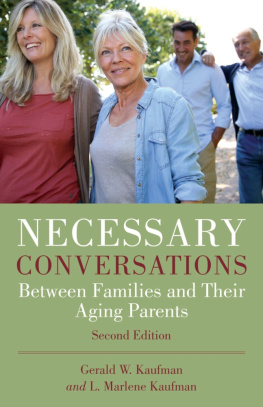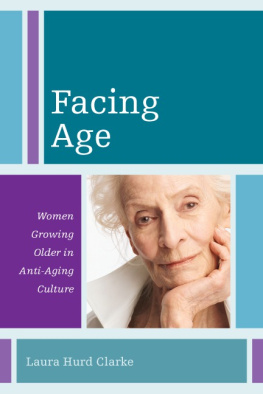This book is dedicated with love and affection to my Mom and Dad, Bob and Johann Lesser, who gave my sister Susie and me so many giftsincluding Dads black book, his version of a Life Transition Planand to my own two sons, Sacha and Noah, who will be the Adult Children to my Older Adult persona! I only hope I can give you the best gift too!
INTRODUCTION
EARLIER THIS WEEK, I was with a new client, Deborah. Her eighty-four-year-old father, Saul, has lived alone about fifteen minutes from Deborah and her family ever since Deborahs mother died seven years ago. Saul suffers from moderate memory impairment, which often leaves him frustrated, and he lashes out at Deborah whenever she tries to help. Saul insists on driving but often cant find his way home and calls Deborah in a rage. He leaves the lights on in the car, so the battery is dead several mornings each month and, you guessed it, he calls Deborah in a rage. Deborah and her three brothers, who live in other states, have talked with Saul about moving to a senior living community or getting some help at home. Saul wont hear of it. Deborah is at her wits end, but her brothers have told her to deal with it.
In my work, stories like Deborahs are my daily diet, and Ive learned that when it comes to our parents, its only a matter of time before we Adult Children will need to become more involved in their day-to-day lives.
Family caregiving is a life stage, often called the other midlife crisis. Since I myself am an Adult Child (and not yet an Older Adult), I do tend to empathize with my own generations struggle with this reality. However, as a life transition coach practicing in Florida, I spend a lot of my time working with Older Adults and have grown to see things much more clearly from their vantage point.
This book was born to fill a specific need, to create a foundation for dialogue between the two generations. It seems that the many other books out there are either from the vantage point of the Adult Child or directed at family caregivers in a general way. When clients would ask me to recommend a book that would guide them in preparing for their future (as either an Older Adult or Adult Child) in a way that treated both generations with equal time and equal respect, I couldnt find one. My clients asked me to write it, and so I have.
As you will see as you dive in, this book is not meant to be an encyclopedic guide to aging or caregiving. There are many other sources for that. At the same time, it is not merely a series of stories about the struggles of growing older or caring for your parents. Rather, I have incorporated real-life examples to illustrate the challenges and opportunities along with conversation starters, tips, and tricks from the field. The book is designed to be read as a whole, but each chapter stands on its own, so if you want to jump in to a particular section, you will be able to. I also anticipate that you will return to certain sections over time as things change in your real-life situation.
The one point I make over and over again is the importance of planning. I advocate creating a Life Transition Plan and include an appendix covering everything that should be included. In addition, readers are invited to visit www.FacingTheFinish.com, where I provide other materials you will find helpful. Ive also included a resources section at the end of this book (and will continue to add to it and update it on the website mentioned above).
When I started my practice, LifeBridge Solutions, LLC in 2009, I had no idea how rich and rewarding my life would become through sharing transitions with so many familiesfamilies no doubt like yours. I am passionate about my work and appreciate the opportunity to help you through one of lifes most challenging transitions. I also welcome your stories, insights, questions, and suggestions. Some of the most important tips and tricks I share in this book have resulted from ideas that started with my clients. Please keep them coming.
1
THE BEST GIFT YOU CAN GIVE:
MAKING DECISIONS
EIGHTY-TWO-YEAR-OLD Betty has determined her final exit strategy. She plans to live life to the fullest for the next five years, throw a grand party, and call it a life. She has documented her wishes and much more in her Life Transition Plan and has held a family meeting to tell her children what she has asset-wise, where her assets are, and how she has arranged for them to be distributed upon her death. Her children have thanked her for giving them the best gift everdecisions they wont have to anguish over.
Getting Older: Its Not a Question of If but When
It can be tough for you Older Adults to face the fact that when you look down the road of your days, more miles are behind you than in front of you. It seems like just yesterday that your kids were young or you ran your company as a corporate giant or you knew you had many more stops to make along your journey. Now, despite your fervent wish that the sand would empty more slowly from the hourglass, time is rushing by. It is the moment to plan your last act and get ready to vacate the stage, surrendering it to a new troupe of players. But facing ones own mortality isnt for the faint of heart. It takes courage to look lifeand deathsquarely in the eye and say, When you come for me, Ill be ready.
Its also the time to admit you may need help, and your Adult Children may be the people who will provide it. Reconciling that need with the automatic reaction you undoubtedly have, that you dont want to be a burden, is part of the wrangling youll have to do to get through this last rodeo.
For Adult Children, facing the issues of your parents aging takes a different brand of courage. First, face the fact that your folks arent going to live forever, and that takes acknowledging that, at last, you really must be an adult. They very probably will require your help, and you may feel some guilt along the way. Lets face it: You have a life, perhaps a family of your own, and not a second, or cent, to spare. And the idea of helping care for your parents comes with an internal groan of Why me? Therein lies the guilt. Its okay if that is your first thought (youll never get above being human), but its not okay if its your last thought.
It will be time to step up and pitch in, just as your parents pitched in to help you. How many times do you think your Dad didnt want to throw that ball to you one more time or your Mom didnt want to get out of bed to comfort you during a nightmare? Consider it payback, and the first step is accepting that the time will come when your help is needed.

